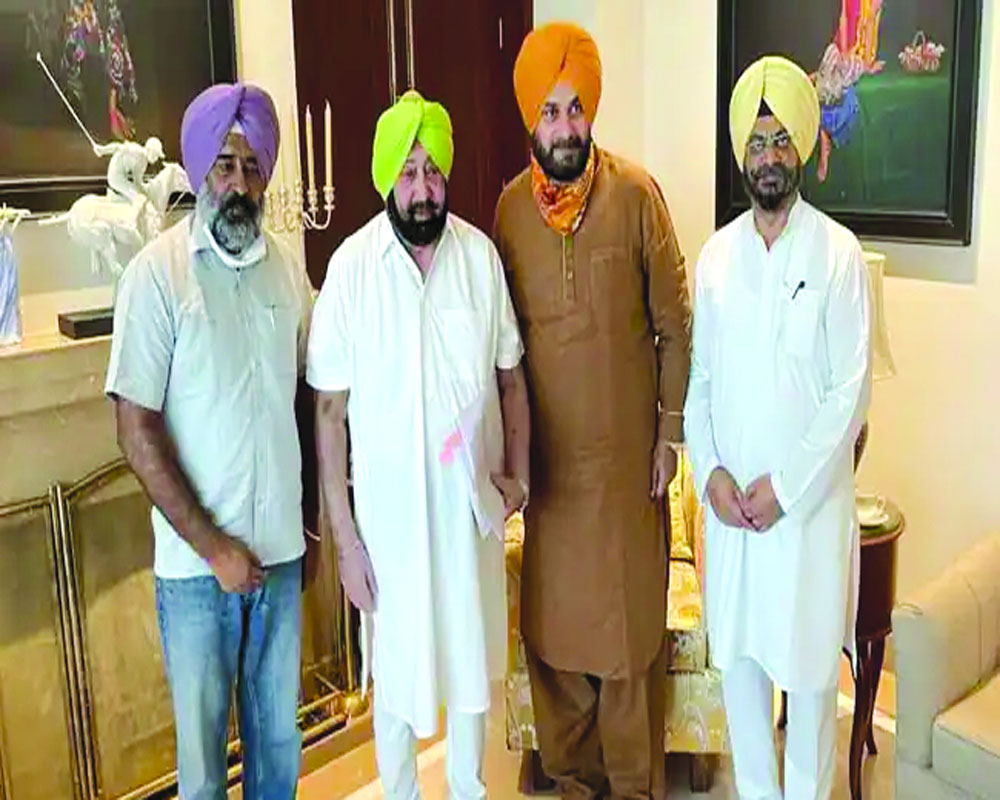The Congress was founded basically to rally against the British but the party lost its compass and the moorings after Independence
It is desirable for every political party to be wedded to an ideology, a comprehensive belief to hold it together. There are times when the party may be in Opposition, with its leaders having few fishes and loaves of power to distribute to members and cadres. Even when in Government, not every member can be included among the beneficiaries. In all such events, an ideology acts as a binding or uniting factor.
The Congress is a useful example to illustrate this phenomenon. It was founded in 1885 to enable leading Indians to voice their grievances. Before going much further, emerged MK Gandhi. By 1919/20, he had espoused the cause of saving the throne of the Sultan of Turkey (who lost in World War I) and of retaining his title as the Caliph of all Sunni Islam. Caliph in Arabic was Khilafat and, therefore, this movement was named the Khilafat movement. Gandhi and his senior colleagues, the Ali brothers, considered religion as an attraction superior to a civilian emperor.
Gandhi soon gave a call for non-cooperation against the British to awaken Indians to the value of freedom. Soon enough, a police station at Chauri Chaura was set on fire by some agitators.
While the British ruled, the Congress did not need any ideology. It was free to respond to all and any call of British provocation, until they left India in 1947. The question of ideology should have arisen after that but the party made do instead with programmes like the ‘socialistic pattern of society’, which it coined at Avadi in 1955, besides Panchsheel, Non-alignment and Indira Gandhi’s 20-Point Programme. In the bargain, the Congress ship had no compass and was, to that extent, like an ancient European ship.
To get back to the general sphere, an ideology should preferably be indigenous and not foreign. Surprisingly, many or most political parties follow ideologies of foreign origin. The new ideas called Marxism gave birth to a new Russian empire in 1917 and misled it to its breakup and demise by 1991. The core of Marxism, contained in Das Kapital, was largely written in the British Museum and parts of it in Europe; its formation had nothing to do with Russia. In fact, Karl Marx had contended that a large and strong proletariat was necessary to engineer a workers’ revolution. Uncannily, Russia had a very small working class and a large peasantry living in villages with fears that the Communists would collectivise their land.
China is also on the Communist path. Neither Germany nor Britain went Communist. During the regime of Adolf Hitler, Germany followed Fascism as its ideology which was innovated in Italy. It represented class collaboration rather than class exploitation of capitalism and class conflict of communism.
The US has two parties: The Republicans are more capitalist and the Democrats less, rather like the Liberals. The Scandinavian countries practise socialism or welfarism. In India, we practise ‘dynamic socialism’, in Nehru’s words. It is only since 2014 India is practising its own indigenous ideology namely Hindu nationalism. Call it Hindudom, if you like. Its emphasis is on dharma. It is not that India has abandoned the rule of law; it still prevails. The rule of dharma has an ethical element in it; it is defined at length in the Bhagwat Gita by Krishna. Veer Savarkar added to the concept in his lucid but brief book. The latest effort is a volume called The Grammar of Hindudom.
An Indian would grasp the contents of the Grammar quickly because the ideas are native to his land. But ask an Indian to understand Marxism and it would be a tough going; merely because the ideas are foreign. This question was best illustrated by BR Ambedkar. He decided that he would not die a Hindu; then which faith to convert to? He rejected Islam and Christianity because he felt that they would be denationalising; they were founded in West Asia, far away from India.
After much thought and consultation, the learned Ambedkar opted for Buddhism; primarily because it was first preached in India. It was in India to the extent that its founder, Gautam Buddha, was adopted to be the ninth avatar of Vishnu. The message of Buddhism would be easy to understand by most common folk. Ambedkar died a Buddhist.
For an election, when a candidate for a constituency is selected, the first question every party asks is whether he belongs to the voting area, so that the voters can relate to her/him immediately. And equally, s/he can relate to them. A candidate from another province would be at sixes and sevens and would take a long time to get familiar with the constituency. There would also be a factor of apnapan. Naveen Patnaik may or may not address his people in Odia but he belongs to Odisha and everyone knows it. A Bengali grown up in Bhubaneswar would not have the same effect. What is true of a candidate should be true of an ideology. What is true of a teacher should ideally apply to the lesson.
(This concludes the series on India making multi-dimensional advancement across States and nations).
(The writer is a well-known columnist, an author and a former member of the Rajya Sabha. The views expressed are personal.)


























